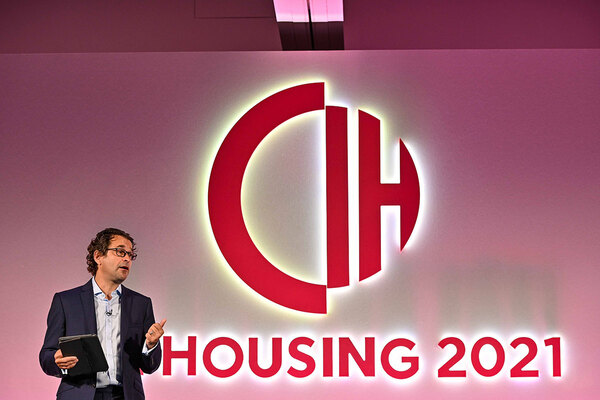You are viewing 1 of your 1 free articles
Chief executive of lease-based association says supported housing ‘gold rush’ led to underperforming providers
The chief executive of a non-compliant specialised supported housing (SSH) provider has said that a “gold rush” by investors led to underperformance among housing associations engaged in lease-based housing provision.
Steve Fensom, chief executive of Westmoreland Supported Housing, which the regulator declared non-compliant in 2018, told the Housing 2021 conference in Manchester today that “a group of chief executives” of non-compliant providers were calling for “increased scrutiny, increased transparency of everything we do and the outcomes we deliver”.
Westmoreland is one of a number of lease-based providers of SSH that have been rated non-compliant over the past few years by the Regulator of Social Housing.
The regulator has previously been critical of these providers’ business model, which sees housing associations enter into long-term lease agreements on properties that are owned by investment funds, before providing them to disabled and vulnerable residents who qualify for higher levels of housing benefit.
Such a business model usually sees housing associations tied into making monthly index-linked payments to the investment funds that own the properties, with some having experienced serious difficulties in meeting their commitments.
Mr Fensom said there was a “gold rush” in the SSH sector four or five years ago, which led to housing providers being “underfunded”, “overcommitted” and “underperforming”.
“I think when the market was generated, a bunch of organisations identified that there was an ability to make profits and they came into this market in a relatively uncontrolled way and they sought great profits – so investors from all over the place and multiple different types of investors – and there was a gold rush,” he said.
“Where the market ended up is that we had a lot of housing associations underfunded, overcommitted, underperforming, without the capabilities to perform.”
He insisted that the market is now “evolving” and that the investors that remain in the sector want to stay in it for the long term and engage with housing providers.
However, one audience member questioned whether things have changed from the “gold rush” period.
“If you are backed by private capital investors who want their return at a certain rate year in and year out, can your model really change and can it really provide a long-term home for the most vulnerable people? I would definitely argue not, unless it fundamentally changes, and in which case your investors would not be there,” said Carla Keegans, founding director of the Ethical Lettings Agency.
Mr Fensom said that SSH providers’ intentions “are all about the individuals” and not about “any capitalist incentive”.
“You absolutely wouldn’t start from this place but… in order to run this we need a long-term source of secure capital. If it ain’t gonna come from government it’s got to come from somewhere,” he said.
Sign up for our care and support bulletin
Already have an account? Click here to manage your newsletters












